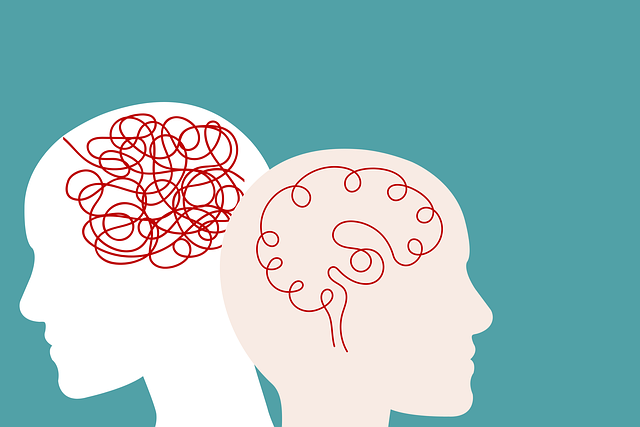In today's diverse world, Superior International Adoptions Therapy emphasizes cultural sensitivity in mental healthcare. Therapists must navigate cultural differences, respect individual experiences and values shaped by culture, and create safe spaces for open communication. This approach, which includes active listening and incorporating culturally relevant practices, enhances understanding of mental health, promotes inner strength, and leads to personalized, effective treatment plans tailored to each patient's unique needs, regardless of their ethnic or socioeconomic background. Ethical cultural sensitivity is crucial for equitable mental healthcare globally.
In today’s globalized world, cultural sensitivity is paramount in mental healthcare. Effective therapy necessitates understanding diverse backgrounds and adapting practices for optimal patient care. This article explores these critical aspects, offering insights into navigating cross-cultural challenges and adopting strategies for culturally responsive care. From understanding foundational concepts to addressing barriers and considering ethical implications, we delve into how professionals can provide superior international adoptions therapy while respecting and embracing varied cultural contexts.
- Understanding Cultural Sensitivity: The Foundation of Effective Therapy
- Navigating Diverse Backgrounds: A Key to Superior International Adoptions Therapy
- Overcoming Barriers: Challenges in Cross-Cultural Mental Healthcare
- Strategies for Culturally Responsive Practice: Enhancing Patient Care
- Ethical Considerations: Ensuring Cultural Sensitivity in Global Psychology
Understanding Cultural Sensitivity: The Foundation of Effective Therapy

Understanding Cultural Sensitivity forms the bedrock upon which effective therapy is built. In a world as diverse as ours, mental healthcare professionals must be adept at navigating the intricate tapestry of cultural differences, especially when treating clients from various ethnic and socio-cultural backgrounds. This involves recognizing that every individual carries their unique experiences, beliefs, and values shaped by their culture, which significantly influence their emotional regulation and interactions with therapists.
Cultural sensitivity is not merely an add-on to therapy; it’s a superior international adoption of practices that enhance mental health awareness. It requires professionals to cultivate compassion and understanding, moving beyond generalizations or stereotypes. By embracing cultural sensitivity, therapists create safe spaces where clients feel heard, respected, and understood, thereby fostering open communication and enabling more effective treatment approaches like compassion cultivation practices.
Navigating Diverse Backgrounds: A Key to Superior International Adoptions Therapy

Navigating diverse cultural backgrounds is a cornerstone for delivering Superior International Adoptions Therapy. In an increasingly interconnected world, mental healthcare practitioners must embrace cultural sensitivity to effectively support individuals from various ethnic, racial, and socioeconomic groups. Understanding cultural nuances fosters a safe and non-judgmental environment, enhancing trust and encouraging open communication. This, in turn, facilitates the exploration of personal experiences, beliefs, and values, which are integral to mental wellness.
Cultural sensitivity also promotes Inner Strength Development and Emotional Intelligence among clients. By recognizing and respecting individual differences, therapists enable clients to build resilience, cope with challenges, and navigate complex emotions. Moreover, it empowers individuals to embrace their unique identities while fostering connections with others, ultimately contributing to improved emotional intelligence and overall mental wellness.
Overcoming Barriers: Challenges in Cross-Cultural Mental Healthcare

Overcoming barriers in cross-cultural mental healthcare is essential for providing effective treatment to diverse populations. Cultural sensitivity requires a deep understanding and appreciation of different beliefs, values, and practices that shape individuals’ experiences with mental health issues. For instance, what may be considered a healthy coping mechanism in one culture could be viewed as taboo or even harmful in another. This cultural dissonance can create challenges for healthcare providers, especially when treating immigrants or refugees who have experienced traumatic superior international adoptions.
Empathy building strategies are pivotal in bridging these gaps. Mental health professionals must cultivate genuine understanding and respect for patients’ cultural backgrounds. Through active listening, open-mindedness, and the use of emotional well-being promotion techniques tailored to individual needs, therapists can foster a safe and supportive environment. By doing so, they encourage clients to express their unique perspectives on mental illness, enabling more precise diagnosis and personalized treatment plans that address specific cultural and psychological barriers, including depression prevention strategies sensitive to diverse communities.
Strategies for Culturally Responsive Practice: Enhancing Patient Care

In the realm of mental healthcare, culturally responsive practice is paramount to providing superior international adoptions therapy. This involves deeply understanding and respecting a patient’s cultural background, traditions, and beliefs. Strategies such as active listening, open-mindedness, and incorporating culturally relevant therapeutic techniques can significantly enhance patient care. For instance, therapists might adapt their approaches to incorporate specific cultural practices that promote healing, like mindfulness or community support networks, thereby fostering a safe and supportive environment for individuals from diverse backgrounds.
By integrating these strategies, mental health professionals can facilitate meaningful connections with patients, boost inner strength development, and improve self-esteem. This not only enhances the therapeutic process but also encourages clients to share their unique perspectives, leading to more effective treatment plans. Ultimately, culturally sensitive care ensures that every patient receives personalized attention tailored to their specific needs and background, resulting in positive outcomes such as enhanced confidence boosting and self-esteem improvement.
Ethical Considerations: Ensuring Cultural Sensitivity in Global Psychology

In the realm of global psychology, ethical considerations surrounding cultural sensitivity are paramount, especially when adopting superior international therapies. With diverse populations and unique cultural landscapes, mental healthcare practitioners must navigate a complex web to ensure equitable and effective treatment. The challenge lies in understanding that mental illness does not exist in a cultural vacuum, and its manifestation and perception vary across societies. Therefore, a culturally sensitive approach is crucial to bridge the gap between universal therapeutic principles and local contexts.
By incorporating cultural sensitivity, mental health professionals can foster better patient engagement and outcomes. This involves recognizing and respecting individual beliefs, values, and practices while adapting therapeutic techniques accordingly. For instance, addressing self-esteem improvement or conducting thorough risk assessments should consider cultural nuances to avoid inadvertently exacerbating existing mental illness stigma reduction efforts. Through continuous learning about different cultures and communities, healthcare providers can offer tailored support, promoting healing and recovery for all patients, regardless of their background.
In the pursuit of providing exceptional mental healthcare, cultural sensitivity is not just a consideration but a necessity. As the global community becomes increasingly interconnected, understanding diverse cultural backgrounds and incorporating culturally responsive practices are key to offering effective treatment. The strategies outlined in this article—from navigating international adoptions to addressing barriers and considering ethical guidelines—equip professionals with the tools to deliver superior international adoptions therapy. By embracing cultural sensitivity, mental healthcare practitioners can foster a more inclusive environment, improve patient outcomes, and contribute to a truly global understanding of psychological well-being.









